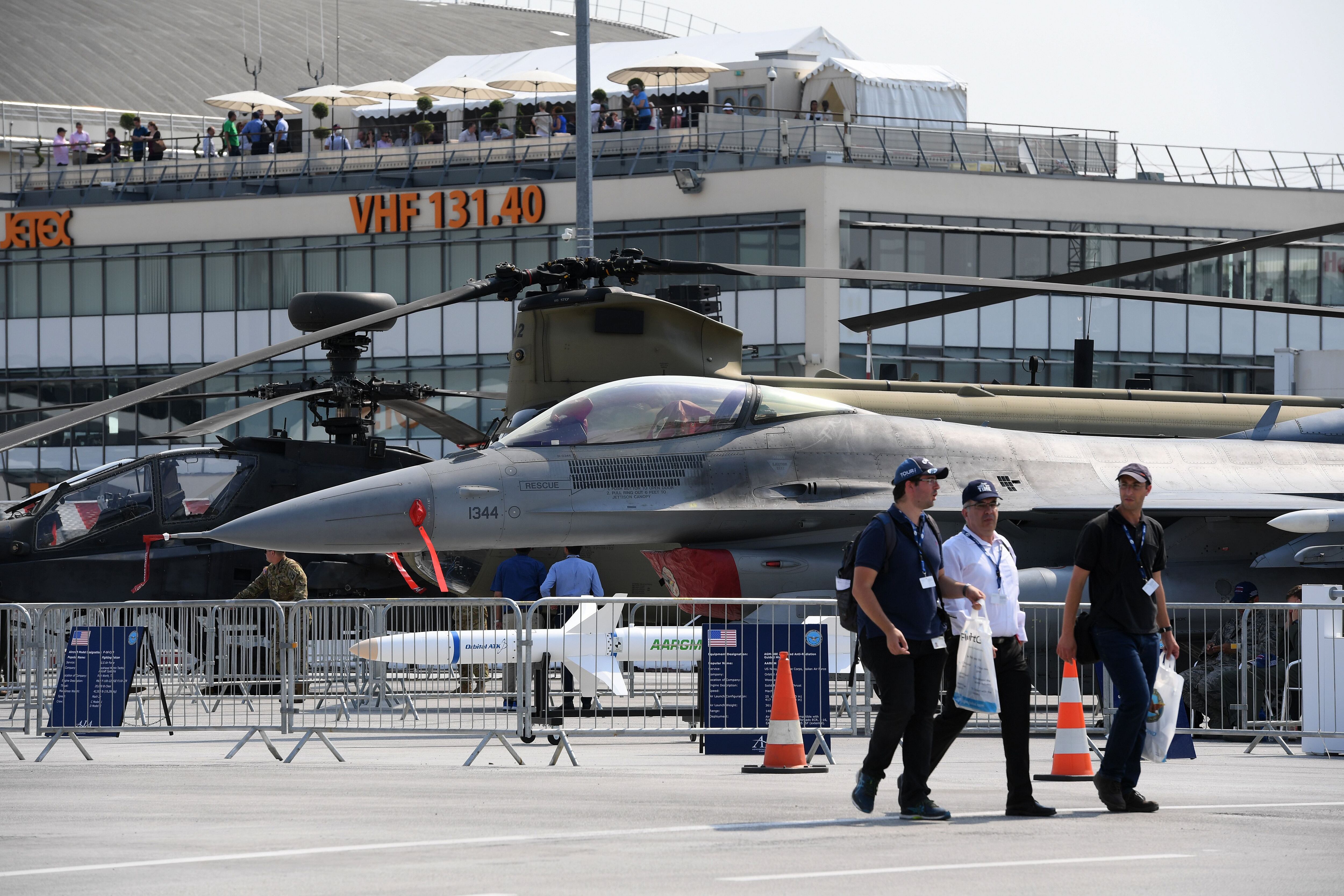WASHINGTON – The new head of the Defense Security Cooperation Agency is seriously considering the creation of a security cooperation university, as he looks for ways to speed the famously deliberate foreign military sales system.
Lt. Gen. Charles Hooper, who took over DSCA in August, is intrigued by expanding the current education options for those in the security cooperation world into “a genuine university, a security cooperation university if you will.”
Hooper said he has been studying how the Defense Acquisition University was stood up and how it has evolved as a potential model for this new venture, which he described as a place that would “not only provide courses for people going to the field, but a genuine font of learning and knowledge, specifically focused on security cooperation. And we’ve already taken steps in that direction.”
The issue was raised at the annual AUSA conference Oct. 10, where Hooper appeared as part of a broader panel on building allied capabilities and was asked about his near-term areas of focus.
RELATED

One major one is education of the workforce, something that Hooper’s predecessor, Vice Adm. Joseph Rixey had also made a priority. That is easier said than done, however, with Hooper noting that his office could not provide an actual number of how many people work in the career field.
“We just didn’t know. So the first step that we’ve taken is, to go out and conduct what we call a ‘data call,’ to identify the population of people who are actually working in security cooperation, so that we can start to determine how many people we have, where they are, how we would craft a career field in order to move forward and create that cadre of security cooperation professionals,” he said.
His other near-term priority involves ensuring greater dialogue between DSCA and the service components, in order to align priorities with the services and combatant commands. As a result, Hooper’s office is now hosting monthly meetings with stakeholders in order to make sure “we’re all on the same page and we all have the same information.”
Both those changes will likely be welcome to industry and allied nations, both of which routinely complain that the American system for foreign weapon sales moves too slowly. Speaking to reporters after the panel, Hooper articulated what he sees as the five big-picture challenges that could be done differently in order to speed the process up.
The first is working early with partners on defining requirements before a request is submitted, something those familiar with the FMS process often highlight as a key early issue. After all, if a country is going to be disallowed from purchasing a piece of equipment, there is no point in letting them ask for it and then starting that process. In addition, countries often do not know what piece of American gear would be best for a specific mission set.
Second is looking at what Hooper called “non-standard, non-programs of record requests, special requests,” with the DSCA head pointing out that the various equipment in the U.S. inventory are easier to clear more quickly. The third issue is the question of technology transfer and the rules over what nations can and cannot have access too. More broadly, the fourth issue is what Hooper called “policy and politics,” which he said he is “continuing to take a look at.”
“Often there are policy dimensions of our security cooperation programs and those are issues that must be taken into consideration as we look to improve the security cooperation processes and reform security cooperation,” Hooper said.
The final issue is industrial capacity, or as he put it, “making sure that our industrial partners have sufficient heads up so that they can fulfill whatever requirement are identified by our partners and we can get it to them as quickly as possible.”
Overall, Hooper said he is trying to drill down in those five focus areas, with an “eye towards how can we collectively address those to make our efforts more efficient, more effective, and more agile and responsive.”
Aaron Mehta was deputy editor and senior Pentagon correspondent for Defense News, covering policy, strategy and acquisition at the highest levels of the Defense Department and its international partners.








